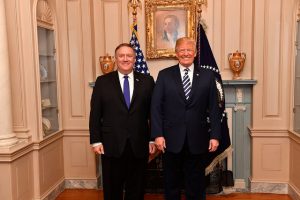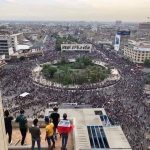Georgetown visiting professor and CIA veteran Paul Pillar had a post up on Friday at The National Interest in which he asks some tough questions about the administration’s tactics in negotiating a fuel swap agreement with Iran. Striking at the core of the P5+1 negotiating position, Pillar asks how the goal of ending Iran’s enrichment of uranium helps prevent the proliferation of nuclear weapons.
Pillar writes:
[An end to Iran’s enrichment of uranium] has come to be treated as a be-all-and-end-all objective that must be achieved—by any means necessary, some would even say. Lost sight of is the fact that Iranian enrichment per se doesn’t harm anyone’s interests (except possibly the economic interests of alternative suppliers of nuclear fuel).
Every once in a while, it’s worth taking a step back and reminding ourselves, as Pillar is doing, that Iranian enrichment isn’t, and shouldn’t be, the primary issue in negotiations with Tehran.
He writes:
[A]lthough the breadth of public Iranian support for developing nuclear weapons is debatable, there is no question that a peaceful nuclear program, owned and operated by Iran, has wide backing among the Iranian public. Iranians see it as a high-profile component of Iran’s weight and prestige.
Under the Nuclear Non-Proliferation Treaty, states have a right to peaceful nuclear programs which, presumably, would safeguard some degree of uranium enrichment.
Pillar suggests that the oversight of Iran’s rights to a peaceful nuclear program under the NPT offers some insight into the real motivations behind many who condemn the Iranian nuclear program.
To deny Iran that right underscores how much the real issue for some is less nuclear proliferation and more a distaste for particular regimes. The denial also accentuates and confirms accusations of double standards regarding proliferation of nuclear weapons.
He concludes that, while Iran-hawks will frequently say that an Iranian nuclear weapon will damage the international nonproliferation regime, denying Iran its right to peaceful uranium enrichment under the supervision of regular IAEA inspections undermines the international nonproliferation regime and the IAEA safeguards which offer assurance that states are in compliance.
Pillar writes:
The failure to explore [carefully negotiated safeguards], along with all other avenues, is remarkable given the very high salience that the Iranian nuclear issue has attained. That failure, and the pursuit of a no-enrichment solution even though this pursuit is likely to fail, are further indications of how much that discourse about Iran has become more a matter of fear and fixation than of careful examination of problems and of possible solutions.
Although Pillar wrote his post before the end of the P5+1 talks in Istanbul this weekend, his warnings may have offered a premonition for the “failure” of the weekend’s talks. (Opinions seem to differ about whether the talks were a failure or a stepping stone for further negotiations.)
As western diplomats point to Iranian preconditions—e.g. Iran’s right to enrich uranium—it’s useful to look past the rhetoric and evaluate the P5+1’s negotiations with Iran in the context of the broader objectives of the international non-proliferation regime. When viewed this way, it’s hard not to share Pillar’s conclusion that, somewhere along the way, the P5+1 lost sight of its true objectives.





Now here at least we have a new perspective. Food for thought, definitely.
On the collpase of the latest round of P5+1 talks, I can’t see how anyone could view it as a stepping stone. The Iranians are clearly feeling their oats — partly, perhaps, in simple defiance of the latest round of sanctions, and certainly because they now know a military strike is off the table (for the forseeable future, anyway). Whether internal Iranian politics also played a part is something I’d like to hear people in the know talk about.